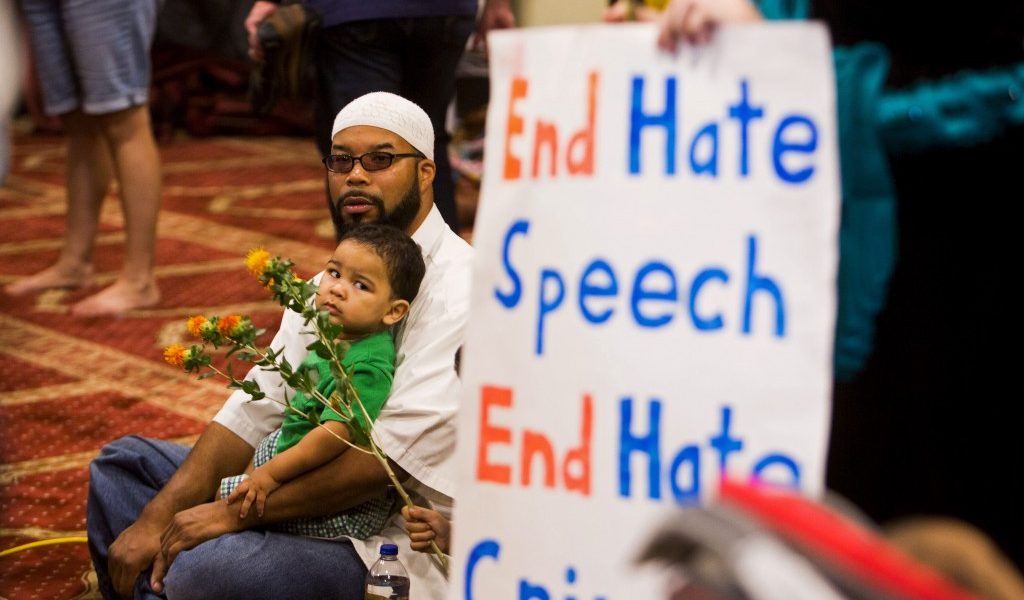The growth of hatred, expressed both online and offline across Europe, confirms the need to address hate speech and hate crime at EU level, an EESC hearing was told.
On 30 March, the European Economic and Social Committee (EESC) held a public hearing to discuss the European Commission’s proposal to broaden the list of EU crimes under Article 83(1) of the Treaty on the Functioning of the European Union (TFEU) to include all forms of hate crime and hate speech.
The intensification of hate speech and hate crime in Europe in recent years is linked to the growing mediatisation of politics and an increase in disinformation campaigns, said EESC member José Antonio Moreno Díaz, the president of the EESC study group which is preparing an opinion on the Commission’s proposal.
“Extreme political groups are endangering the health of our democracy. Europe is experiencing a growth of hatred. Civil society has warned us about it, and the recent experience of the COVID-19 pandemic has confirmed it,” explained Mr Moreno Díaz. Hate speech and hate crimes target not only the victim but also the group to which they belong, which leads to an erosion of culture, fundamental rights, and the social foundation of society.
Our Treaties do not provide a legal basis for criminalising hate speech and hate crime at EU level. They are only criminalised under the Framework Decision on combating racism and xenophobia. For this reason, the European Commission proposes extending the list of recognised EU crimes to include hate speech and hate crime. Ingrid Bellander Todino, from DG Justice and Consumers at the European Commission, stressed the need for Member States to act in concert: “Only a common EU initiative can effectively protect our values and address the challenges raised by the scale, the cross-border nature, and the increasing trend of the phenomena.”
The option of extending the list of EU crimes set out in Article 83(1) has never been used before. “While some Member States have voiced concern, a very broad majority in the Council support the initiative. Work on this proposal will continue in order to reach the required unanimous agreement as soon as possible,” promised Pauline Dubarry, Chair of the Council Working Party on Fundamental Rights, Citizens Rights and Free Movement of Persons (FREMP) for the French Presidency.
The road to an EU directive
If agreement is reached in the Council, the Commission will begin working on a proposal for a directive harmonising the definitions of criminal offences and sanctions in the areas of hate speech and hate crime. Several points of interest for this second phase of the initiative were raised during the hearing.
The first issue is one of definitions. The line between hate speech and freedom of expression is often blurred. “Freedom of expression can never be freedom to attack. It must not be used as a licence to engage in hate speech,” stated Miguel Angel Aguilar Garcia, Coordinating Prosecutor for Hate Crimes and Discrimination at the Barcelona Provincial Prosecutor’s Office.
Ricardo Gutierrez of the European Federation of Journalist raised the need to preserve freedom of expression and to support independent media. Mihail Boyadzhiev, Chairman of the Union of Bulgarian Foundations and Associations, added that future work on the definition must also take into account that people’s self-identification with groups in society is extremely important for discerning the intent and impact of hate speech and hate crimes. When considering sentencing, prosecutors should look at the social context, the leadership position the offender holds, and their capacity to influence society.
Another concern regards hate crimes in the digital sphere. Since these acts of hatred touch entire sections of society, the ability to initiate cases without the involvement of an individual victim has become fundamental. “To combat hate speech online, roles and responsibilities of both authors and service providers must be clearly defined,” urged Daris Lewis, Legal and Policy Officer at Equinet.
As a final point, the panel participants highlighted the importance of preventive measures against hate speech and hate crimes. Measures and policies promoting equal treatment and limiting discriminatory behaviours should be promptly put in place, together with public awareness-raising campaigns.
The conclusions of the hearing will feed into the EESC opinion on the subject. The opinion will be adopted in the EESC’s plenary session in May.




